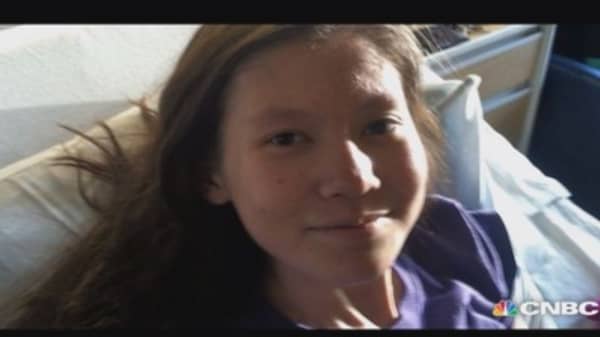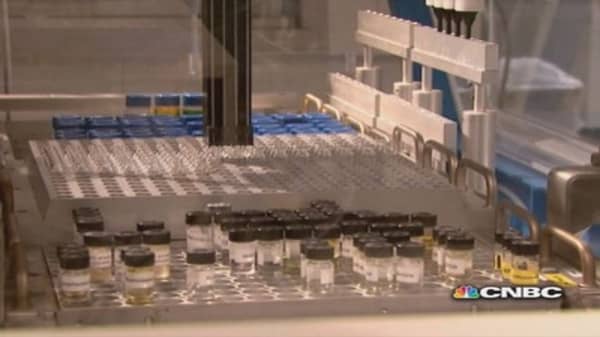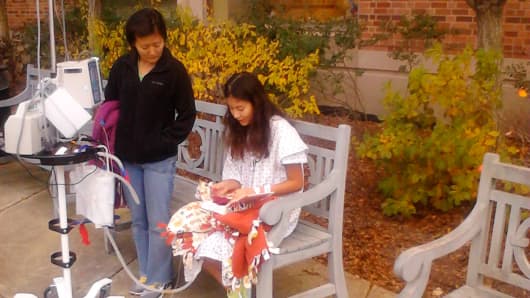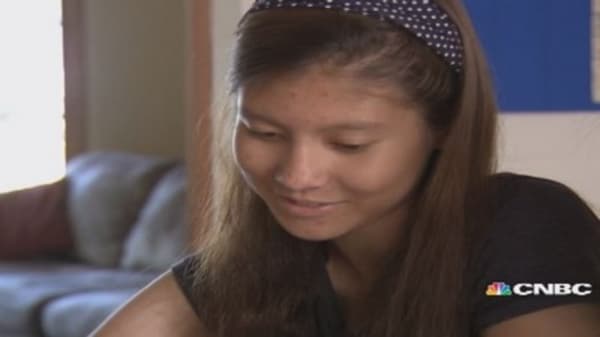In June, three U.S. senators sent a letter to FDA Commissioner Margaret Hamburg seeking information about the compassionate use system. And Rep. Michael McCaul, a Republican from Texas, is supporting legislation in the House that would lead to a review of compassionate use by the Government Accountability Office. Outside the U.S., a movement is mounting in the U.K., backed by Maurice Saatchi, founder of the eponymous advertising firm. Called the Medical Innovation Bill, or informally the Saatchi Bill, it aims to enable doctors to consider using unapproved medicines in situations where they make scientific sense.
The compassionate use system, of course, is not limited to patients battling cancer—the concept originated amid the HIV and AIDS crisis in the 1980s, and then was adopted by breast cancer patients seeking use of the drug Herceptin in the 1990s. Recent pleas for compassionate use have spanned diseases from Duchenne muscular dystrophy to amyotrophic lateral sclerosis, also known as Lou Gehrig's disease.
Two years ago, Biogen Idec, a Cambridge, Massachusetts-based company that's developed several drugs for multiple sclerosis, was testing a medicine for ALS that showed some promise in a mid-stage trial. Requests for the drug on compassionate use or expanded access poured in. ALS is a degenerative disease with no major treatment options, and patients usually die within three to five years of diagnosis. Yet Biogen said no.
"It's an agonizing process to go through," said Doug Williams, Biogen's head of research and development, in an interview in Cambridge. "The challenge, and what we try to remind ourselves of, is that an individual situation, while difficult and heart-wrenching, has to be weighed against the backdrop of what the ultimate goal is, which is to try to bring these drugs to market to treat the broadest cross section of the population as quickly as we can possibly do it."
The FDA allows compassionate use or expanded access on the condition that the programs don't slow down clinical development of a medicine. And that's a concern for drugmakers: who would enroll in a clinical trial where they risk getting a placebo if there's a sure route to getting the drug?
"It's a fairness issue that we've really struggled with," Williams said.
Meanwhile, as Biogen was running its phase 3 study—the last stage generally required before applying for regulatory approval—it made plans to offer the drug through expanded access if the results were positive. It designed a program that took into account the views of patients and advocates, what was known about the medicine's safety and efficacy for establishing who would qualify, ethical allocation policies and a plan to be transparent in its communications, according to a document provided by the company.
If the study was positive and the last step was just the go-ahead to market the medicine, Biogen planned to provide the medicine for free for 5,000 patients until it received approval. (Under FDA rules, companies are allowed to charge for investigational medicines on expanded access, but not more than the cost of manufacturing and making the drug available to patients.)
When the study results came in, they showed the drug provided absolutely no benefit to ALS patients. Biogen ended the program. The suggestive signal in phase 2, which made so many patients seek to try the drug immediately, didn't bear out in the larger study.
Yet for patients without treatment options, waiting for the clinical trial process to run its course can be untenable. And at times that pressure shifts from drugmakers to the FDA.
In July 2012, Sarepta Therapeutics reported data showing its drug, eteplirsen, may help stem the declines in boys with Duchenne muscular dystrophy that can put them in wheelchairs by their teens. The drug had been tested in just 12 patients. The DMD community rallied the company for access outside clinical trials.
Sarepta, a small drugmaker working on its first medicine, wrote an open letter saying it couldn't produce enough of the drug to meet demands of patients outside the study. Since then, the community's efforts have shifted to the FDA in demands to get the medicine to market faster, CEO Chris Garabedian said in an interview. Two years later, the company has just reached an agreement with regulators to start the next phase of studies and apply for regulatory approval.
Any delays individual patients face can come with heartbreak. Jenn McNary has two boys with Duchenne—which primarily affects boys because of the way it's inherited. Her younger son, Max, entered Sarepta's trial. Her older one, Austin, was barred because he already couldn't walk.






























